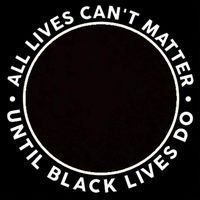Search the Community
Showing results for '공주출장업소《카톡: po03》{goos20.c0m}출장최고시외국인출장만남Y╅┺2019-01-19-10-35공주╩AIJ↸출장업계위콜걸출장마사지콜걸강추✍외국인출장만남➴릉콜걸샵☪공주'.
Found 17,501 results
-
thankyou so much every one for youre support, you cant believe what a great help you have all been..... over here in England i live in a small village, just off Weston-super- mare, near a city called Bristol....... and lap band surgergy is so unheard off!!!!. anyway i have continued to take the Acid meds these being Omeprazole 20mg 3 times a day. and my god they have worked..... i am not rolling around in pain any more and i have even been out to the shops...bless....... i have never in my life expericened pain like it....... i am now just got a dull ache around my port site allmost like i have pulled a muscle........................... i went off to lunch with a friend ...she turned up to pick me up just as i was writing my last message above..... well i have only been out for 2 hours and i have had to come home.....as soon as i started eating the pain got worse spreading round my back.....to me that is a pain from eating to much...but i have no trouble in swallowing just the pain after eating... its a different pain to the pain i am geeting from my port site... this pain is a constant dull ache....the tablets have been working so well... i thought i was getting better. but when the pain is back i just want a hot bath...and i find it painfull to stand up tall. it is less painfull if i bend over slightly.... i have just booked to see my G.P tomorrow at 10.10 am england time.....i could not get in to day. i am ment to be going back to work next week, and i work on a busy ward at the hospital doing 10 hrs shifts Monday to Friday...and i am worried i wont cope....and i have never been off sick befor and this time i have been off work for 4 weeks.............and they want me back.....but i just want to be back to normal...... could it be gas in my abdo, that causes this intense abdo pain after i have eaten.....and where is it comming from, i have never had this befor........ and my port site is so sore what could that be...i am sure i can feel a lump next to it... bit this just might be fat......... so far i have lost 6 and half stone and i now weigh 12 stone 2 lb....in 16 months and never ever had a problem in all that time....... thankyou every one so much ...i wish i could come over and meet you all and have a good chat..... carina thompson.....
-
I went to sears 10 or 11 days post op and did the elliptical for 10 min with no problem. I was amazed. I really liked it. I then walked around the mall for a couple of hours.... but then again I have been riding my bicycle (not since surgery) around 3-4 miles at a time, up small inclines so that probably helped me out.
-
I've read so many times in various threads about people eating super low calories, and it always worries me. And also high fat, high Protein, low carb diets... I wanted to post about the dangers of very low calorie diets and of high fat/protein low carb diets, so here is some info and the sources it comes from: "When you want to lose weight, a very low-calorie diet can seem attractive. After all, the sooner you lose weight the better, right? Well...no, that's not right. Eating fewer than 1000 calories a day can, at best be a short-lived attempt at dieting, at worst it could be a recipe for long term health problems. Your body is not designed to function well on a very low calorie diet. In fact, it goes into starvation or famine mode and tries to preserve essential functions at the expense of the less essential ones. So what happens to your body on fewer than 1000 calories a day? Your metabolism slows down to conserve energy. Your body uses blood sugar, made from carbohydrates, for fuel just as a car uses gas (petrol). Without blood sugar, the brain and central nervous system, as well as other bodily systems, will cease to work efficiently. To try to counteract the lack of blood sugar from carbohydrates in the diet, your body will break down fat, which is what you want, but it will also breakdown muscle and other lean body tissue. Losing lean body tissue can be very dangerous. Even organs can be broken down to use as fuel. Losing lean body tissue can also be counter-productive. Muscle tissue increases the resting metabolic rate. With reduced amounts of muscle, your metabolism will slow. When you come off the diet, increased fat cells will form because your metabolism is slow and so your body needs less blood sugar for fuel. It is also a survival mechanism in case of another 'famine'. With very low calorie diets, an imbalance in minerals and electrolytes can occur, which can be dangerous. These govern the balance of fluids in the body allowing nerves and muscles to function. Osteoporosis can be another danger, especially for women. Often dairy products like eggs, milk and cheese are cut out of a very low calorie diet so cutting out a major source of Calcium leading to loss of bone mass. Anaemia (a lack of Iron in the blood) can also be another risk. If taken to extremes, women can find that menstruation (periods) becomes irregular or stops altogether. A lack of serotonin in the brain can be another problem which leads to clinical depression. You might find that the lack of essential nutrients on a very low calorie diet leads to a deterioration in the condition of your hair and nails. One of the great dangers of this kind of dieting is that you can become acclimatised to it. As your body reduces some of its functions, including those of the brain and nerves, and as depression takes hold due to a lack of serotonin, you can slip into anorexia nervosa - a truly life threatening condition. As mentioned above, when you finally come off this diet, you will almost certainly regain all the weight you have lost plus more leading to yoyo dieting, now believed to be dangerous. Altogether, very low calorie diets are a danger to physical and mental health. They are counter-productive and can lead to long term problems as well as a lifetime of yoyo dieting. It is far better to lose weight safely and slowly on a sensible diet." (source reference: http://www.allinfoaboutdietsnutrition.com/index.php?page=21 ) "Low-carb/high-fat diets pose dangerous health risks and may increase the risk of contracting serious chronic diseases. Studies have linked extreme low-carb/high-fat diets to an increased risk of developing certain disease states, including: • Alzheimer disease • blindness and macular degeneration • some forms of cancer • cardiovascular and heart disease • c-reactive protein/inflammation • metabolic syndrome and insulin resistance • osteoporosis • kidney stones This is due to increased levels of saturated fat and dietary protein in the diet, with inadequate nutrition coming from plant-based phyto-chemicals. [/url]Low-carb diets may increase the risk of birth defects and childhood cancers. Bread, Pasta, Breakfast cereals and orange juice — foods that are “off-limits” in a low-carb diet — are fortified with folic acid, a micronutrient essential to the neurological development of fetuses. The U.S. food and Drug Administration currently requires that enriched grain products be fortified with the essential Vitamin folic acid (the synthetic form of naturally occurring folate, or vitamin B-9, found in many leafy green vegetables, fruits and legumes). Since the fortification of grain-based foods with higher levels of folic acid, beginning in 1999, there has been a remarkable 19 percent drop in neural tube birth defects in the United States. Followers of a low-carb diet do not receive the benefits of folic acid fortification. Low-carb/high-fat diets are not more effective for weight loss. According to studies published in the New England Journal of Medicine and the Journal of the American Medical Association, there are no significant differences in weight loss between low-carbohydrate diets and conventional weight-loss plans. The study published in the Journal of the American Medical Association (April 9, 2003) reviewed studies of low-fat diets conducted between 1966 and 2003, and found that weight loss from low-carbohydrate diets was associated with length of diet, pre-diet weight, and the number of calories consumed, but not reduced carbohydrate content. The study published in the New England Journal of Medicine (May 22, 2003) found greater weight loss with a low-carbohydrate diet than a conventional diet during the first six months, but no significant differences in weight were observed after one year.1 Low-carb diets are perceived to be effective because of the rapid, initial weight loss. However, the weight loss is primarily due to the loss of muscle glycogen and Water — not body fat. Loss of muscle glycogen can result in lethargy and fatigue.1 Foods high in carbohydrates, such as fruits and vegetables, are generally more filling — more “bulky” — than foods high in fat, and less prone to overeating. Foods high in fat can increase energy intake (calories) because they are more energy dense, not as “bulky,” and taste good, leaving eaters desiring more and making it easy to over-consume them. A lifestyle that is high in high-fat foods and low in exercise can lead to weight gain. Carbohydrates, such as pasta, do not make you fat. Consistently overeating calories— whether they’re from carbohydrates, fat, or protein — will make you fat. The only genuine, time-tested principle of healthy, long-term weight loss is to take in fewer calories than your body burns. Low-carb diets may cause cognitive difficulties. Carbohydrates are the only source of fuel that the human brain — the most energy-demanding organ in the body — can use. Muscle cells can burn both fat and carbohydrates, but the brain does not have the “machinery” to burn fat. Depriving the brain of carbs means depriving it of energy — and the shortfall can affect intellectual performance, such as memory and cognitive processing.1 Once the body’s glycogen reserve is exhausted, the brain ends up using ketones, a by-product of the breakdown of fat. Ketones are not the optimal energy source for the brain, and their increase in the body has been shown to impair mental judgment.2 Low-carb diets can make people — especially women — short-tempered. A new study at the Massachusetts Institute of Technology found that the brain produces serotonin — which regulates moods and emotions — only after a person consumes sweet or starchy carbohydrates, in combination with very little or no protein. A shortage of serotonin can lead to mood swings and depression. Eating a healthy pasta meal encourages the brain to make serotonin; eating a steak actually stops it from being produced.3 A Healthier Choice According to the American Dietetic Association, the voice of nutrition in America, there are no good or bad foods — only good or bad diets. At “Healthy Pasta Meals,” a recent Barilla-sponsored conference in Rome, Italy, a team of 38 nutrition scientists from around the world concluded that the “Mediterranean diet” is an excellent choice for maintaining overall health. The Mediterranean diet includes abundant plant foods (such as vegetables and pasta); olive oil; dairy products; fewer than four eggs weekly; fish and poultry in low-to-moderate amounts; red meat in low amounts; and wine with meals, in low-to-moderate amounts. A 2003 study in the New England Journal of Medicine found that the Mediterranean diet reduces the risk of death from heart disease and cancer.4" Low-carb/high-fat diets pose dangerous health risks and may increase the risk of contracting serious chronic diseases. Studies have linked extreme low-carb/high-fat diets to an increased risk of developing certain disease states, including: • Alzheimer disease • blindness and macular degeneration • some forms of cancer • cardiovascular and heart disease • c-reactive protein/inflammation • metabolic syndrome and insulin resistance • osteoporosis • kidney stones This is due to increased levels of saturated fat and dietary protein in the diet, with inadequate nutrition coming from plant-based phyto-chemicals. Low-carb diets may increase the risk of birth defects and childhood cancers. Bread, pasta, breakfast cereals and orange juice — foods that are “off-limits” in a low-carb diet — are fortified with folic acid, a micronutrient essential to the neurological development of fetuses. The U.S. Food and Drug Administration currently requires that enriched grain products be fortified with the essential vitamin folic acid (the synthetic form of naturally occurring folate, or vitamin B-9, found in many leafy green vegetables, fruits and legumes). Since the fortification of grain-based foods with higher levels of folic acid, beginning in 1999, there has been a remarkable 19 percent drop in neural tube birth defects in the United States. Followers of a low-carb diet do not receive the benefits of folic acid fortification. Low-carb/high-fat diets are not more effective for weight loss. According to studies published in the New England Journal of Medicine and the Journal of the American Medical Association, there are no significant differences in weight loss between low-carbohydrate diets and conventional weight-loss plans. The study published in the Journal of the American Medical Association (April 9, 2003) reviewed studies of low-fat diets conducted between 1966 and 2003, and found that weight loss from low-carbohydrate diets was associated with length of diet, pre-diet weight, and the number of calories consumed, but not reduced carbohydrate content. The study published in the New England Journal of Medicine (May 22, 2003) found greater weight loss with a low-carbohydrate diet than a conventional diet during the first six months, but no significant differences in weight were observed after one year.1 Low-carb diets are perceived to be effective because of the rapid, initial weight loss. However, the weight loss is primarily due to the loss of muscle glycogen and water — not body fat. Loss of muscle glycogen can result in lethargy and fatigue.1 Foods high in carbohydrates, such as fruits and vegetables, are generally more filling — more “bulky” — than foods high in fat, and less prone to overeating. Foods high in fat can increase energy intake (calories) because they are more energy dense, not as “bulky,” and taste good, leaving eaters desiring more and making it easy to over-consume them. A lifestyle that is high in high-fat foods and low in exercise can lead to weight gain. Carbohydrates, such as pasta, do not make you fat. Consistently overeating calories— whether they’re from carbohydrates, fat, or protein — will make you fat. The only genuine, time-tested principle of healthy, long-term weight loss is to take in fewer calories than your body burns. Low-carb diets may cause cognitive difficulties. Carbohydrates are the only source of fuel that the human brain — the most energy-demanding organ in the body — can use. Muscle cells can burn both fat and carbohydrates, but the brain does not have the “machinery” to burn fat. Depriving the brain of carbs means depriving it of energy — and the shortfall can affect intellectual performance, such as memory and cognitive processing.1 Once the body’s glycogen reserve is exhausted, the brain ends up using ketones, a by-product of the breakdown of fat. Ketones are not the optimal energy source for the brain, and their increase in the body has been shown to impair mental judgment.2 Low-carb diets can make people — especially women — short-tempered. A new study at the Massachusetts Institute of Technology found that the brain produces serotonin — which regulates moods and emotions — only after a person consumes sweet or starchy carbohydrates, in combination with very little or no protein. A shortage of serotonin can lead to mood swings and depression. Eating a healthy pasta meal encourages the brain to make serotonin; eating a steak actually stops it from being produced.3 A Healthier Choice According to the American Dietetic Association, the voice of nutrition in America, there are no good or bad foods — only good or bad diets. At “Healthy Pasta Meals,” a recent Barilla-sponsored conference in Rome, Italy, a team of 38 nutrition scientists from around the world concluded that the “Mediterranean diet” is an excellent choice for maintaining overall health. The Mediterranean diet includes abundant plant foods (such as vegetables and pasta); olive oil; dairy products; fewer than four eggs weekly; fish and poultry in low-to-moderate amounts; red meat in low amounts; and wine with meals, in low-to-moderate amounts. A 2003 study in the New England Journal of Medicine found that the Mediterranean diet reduces the risk of death from heart disease and cancer.4" (source: http://www.barillaus.com/Dangers_of_LowCarb_Diets.aspx ) Take care of yourselves! and research the effects of your choices!!! XO Leila
-
I think I managed 10 minutes the first time and my legs were like wet noodles and I needed help walking. LOL Now I do an hour with the crossramp up at 20 (top level) for 45 minutes of that and could do another hour if I needed/wanted to. It's just about building up endurance. Keep trying - you'll get there!
-
ok let me just say I LOVE the Elipitical. But I had to work up to it. My first time on it I managed a Whole whoppin 2 minutes before I thought my legs would give up. I felt so bad (mentaly) about not being able to do more then that. But the next day I got back on and did 4 minutes...then 6 then 10 then 15 then 20 then 30 every time I pushed myself a bit harder to get the hang of it. I am not up to an hour on it. and I feel exilirated when I get off. To see the little things get on and only able to complete 10 minutes and check out my time as they walk by feels great. Now I am going to try some sprints on the elipitical along with my normal pace. To bump my metabolism up. I say give it another shot. I find it to be easier on my joints then the treadmill and I also go faster and further then I ever did on the treadmill.
-


GAINING weight first week post-op? What's happening?
Jessica Santos posted a topic in POST-Operation Weight Loss Surgery Q&A
STARTING WEIGHT (256.6) I went on a 10 day pre-op diet with which I lost 16 pounds. My 5th day post op I had reached 28 pounds lost. On the 26th I had gone back to 236 pounds. My coordinator with whom I still speak with has told me that it can be excess Water. I'm in my second week post op. What should I be drinking/doing to see some significant weight loss? PLEASE HELP ME!- 7 replies
-
- Weight gain
- post op
-
(and 3 more)
Tagged with:
-


How many if you lost weight during preop?
wwboy replied to baileyj908's topic in PRE-Operation Weight Loss Surgery Q&A
I've been on the pre op liquid diet since before thanksgiving. Almost 6 weeks now. In the time between May and December, I lost around 30lbs which is 10% of my body weight. I'd say half has been while on the liquid diet and the other half has been from changing my habits over the summer. Sent from my iPhone using Tapatalk My surgeon didn't require any specific amount of weight loss - although he said that if I gained weight, they would restart the process all over again. Sent from my iPhone using Tapatalk -
I work nights, 13 hour shifts just about. I eat my dinner around five pm. I eat a light snack around 10:30 pm or 11:00 pm. I take my meal break if I’m lucky around 3 am and eat left overs of what I have made earlier in the week....chili, soup, chicken items, etc. I try not to eat when I get home, but if I am hungry I will eat a little snack then too. My snacks are usually 130-150 calories and my meals are between 250-300 or so. It can be hard on nights because you are already fighting your body’s natural rhythm. Stay away from high carb senseless items like cereals and chips and such. I see ppl eating this stuff all night long but they can’t figure out why they gain weight. One lady eats almost a whole box of cereal every shift plus her meal....
-


How many if you lost weight during preop?
The Candidate replied to baileyj908's topic in PRE-Operation Weight Loss Surgery Q&A
My highest weight was 248. I was required to lose 10% and by surgery date I was 216, so I lost a bit more. My insurance encouraged me to lose as much as possible as a pre op. Good luck! -


July 1st 2019 surgery siblings? Whether Bypass or VSG
alex76 replied to KarenLR75's topic in General Weight Loss Surgery Discussions
I will be having gastric bypass on July 3. I started my program in Feb 2019, but have battled weight issues my whole life. I am excited and anxious about my upcoming date. I cannot imagine weighing less than I do now. At 42 years old, I've been morbidly obese my entire adult life and obese my entire life. So many thoughts run through my head about this surgery, but I tell myself to take it one baby step at a time. My program only requires 2 days liquid diet, so I don't even start that til July 1. Would love to keep in contact with you and our other July siblings [emoji16] Good luck to all of us! Sent from my SM-N960U using BariatricPal mobile app -


Tell Me About Your New Clothes
SkinnyMinnie2Be replied to Boofster's topic in POST-Operation Weight Loss Surgery Q&A
So I cleaned out my garage today. Found 4 60Litre tote bins full of clothes that I have purchased over the years that either got too tight or were bought in smaller sizes in hopes that some diet at some time would work. Didn't realize how much clothes I had! So for now I'm going to stick with those. I am going to allow myself a certain $$ amount per month once I reach 199lbs (currently 248). I feel like the clothes I have will fit me until then. I won't be buying a new coat or boots this winter. I have pea coats from 3-4 years ago that we're too snug...but I remember I was about 220lbs when I bought them a few years back. Boots will be my great next year:) I hope to be at goal by next October goal being 130-140 lbs so far I have a size 10 dress I'm hoping will fit me in the spring/summer. My fiancé and I need to get some engagement pics done!! -


Tell Me About Your New Clothes
Boofster replied to Boofster's topic in POST-Operation Weight Loss Surgery Q&A
My pre-op class is scheduled for Nov. 6. My surgery is tentatively scheduled for Nov. 19 at Morristown. Just waiting on letter of necessity from my PCP and then everything will be submitted to insurance for approval. -


Tell Me About Your New Clothes
Catracks replied to Boofster's topic in POST-Operation Weight Loss Surgery Q&A
Good will for me. Right now depending on the brand I am either a size 10 or 12 - although most 12s are loose. Wearing loose pants with my extra lower belly skin does not look so good, so I have to make sure things fit. I really do have to complain about dress designers that make dress based a A or B cups. A 10 fits in the waist, but I need a 14 for my size C bust. -
Hey guys I just had my gastric sleeve done on the 21/10 and I'm able to walk around, go toilet, etc. I barely had any pain (around 2/10 max). The nurses say I need to drink at least 1 litre of water. They also gave me some soup and yoghurt, which was fine for me to eat. However it only hurts when I'm drinking water. I can keep it down but there's just slight pain. Has anyone else experienced this? Also, can anyone give me any tips/advice on what to expect when I go home? Thanks
-
I'm glad it's not just me. I am only 10 days out but have no desire to eat anything. Only thing I like is a few bites of sugar free applesauce, fat free refried beans and maybe some yogurt.
-


Any One Else In There Late Teens, Early Twenties ?
americas_suiteheart posted a topic in Tell Your Weight Loss Surgery Story
Greetings ! My name is Princess and I am 19 years old as well as a sophomore in college ! I would really like to meet other people who have embarked on this journey OR who are going through the pre-op stages any help or advice will be greatly appreciated ! Thank you ! -


Lost 30 lbs but didnt go down a size? Extra skin question
TinyMamiOf3kids replied to Jenny's topic in POST-Operation Weight Loss Surgery Q&A
I do. This is the reason my plastic surgeon recommend I gain weight cuz I have extra skin and only enough fat to fill my boobs. In other words I don't have enough fat to transfer to my butt & places to curve me up. So come April I have 4 months to gain 10/20 pounds you won't notice since it will be sucked out. -


Lost 30 lbs but didnt go down a size? Extra skin question
mizzlaw replied to Jenny's topic in POST-Operation Weight Loss Surgery Q&A
Give it time, i also thought i had too much skin , but as it turns out i went from a size 24 to a size 10.... I had surgery 10/3/12........ Only time will tell..... -


You Know You Were Fat When...
buffythefatslayer replied to Mckate's topic in Weight Loss Surgery Success Stories
How interesting! I have at times lost 10-15lbs and hate people comment. Maybe they were being nice because they knew I was dieting. -


Clothing/size question
LilMissDiva Irene replied to Gayle's topic in POST-Operation Weight Loss Surgery Q&A
Hi Gayle, wow congrats so far on your losses!!! You're rocking your sleeve girlie!! Next, usually for the larger sizes you will stay in them much longer than you will the smaller ones. I went through my first sizes a little fast, but I literally stayed in 18's for about 40 Lbs I think. Now in my smaller sizes they are lasting around 7-10 Lbs each. I hope this helps! Don't feel discouraged. You will get there. Time will pass the inches will melt away into smaller clothes. -


Will I Start To Look Old?
traceyinflorida replied to Raven21's topic in Gastric Sleeve Surgery Forums
Hmm...double chin or a few new wrinkles? I decided if I had a choice I would gladly trade a few wrinkles for the double chin! So far, so good. I have not had to pay up. Double chin is gone and no new wrinkles. Everyone tells me I look 10 years younger. I am religiously moisturizing though! -
Only did I regret it during the first 10 days. After that I felt a lot better physically and mentally. Sure there is the risk of complications with any surgery. But don't forget the risks of being overweight. They have to be considered too. I'm 7 weeks out. I went out to dinner last night. I had 2 nibbles of a chicken & cream cheese spring roll, 1 BBQ rib and a couple of bites of fried sweet potato cubes. For dessert I had 2 bites of a sugar free chocolate pie. There was a pretty long time from dinner to dessert. I came away very happy and satisfied. I had a taste of everything I wanted. Without the sleeve no matter my good intentions I would have over eaten. I still struggle with the 2 more bites on my plate. I have eaten them and then regretted it. Either feeling miserable or barfing!
-
I have what feels like spasms in my tummy when I eat or drink something. I also have the feeling in my tummy that moves it reminds me of being pregnant. Has anyone else experienced this weird feeling?
-
From the album: me
-
My sleeve surgeon just did a gallbladder removal for me a couple weeks ago. I saw him today for follow-up and he chatted a bit about a bariatric surgeon conference he just attended in Sydney, AU. Just as background, my surgeon does mostly sleeves and the occasional bypass. He used to do a ton of bands but now only does the band if the patient insists. He still maintains a lot of bands. He said that the band is way down in Australia and whole areas of the country have no band surgeons anymore. He also said that the re-operation rate (for all types of re-operation) is as high as 40% with the band. He said that the band has a lot of potential points of failure, including that the port can flip, the needle can puncture the band during a fill and cause a leak, or lots of other ways that are not really direct failures of the band. He seems pretty down on the band now but wants to give his existing band patients the highest standard of care. He also confirmed that Allergan has sold the lap band to another company, Apollo Endosurgery. I googled that and found a story in the Wall Street Journal. http://m.asia.wsj.com/articles/SB10001424052702303471004579165961441181356?mobile=y He said that the sleeve is gaining massive popularity because of the low complication rate, high success rate, and that they are starting to feel really confident about the long term prospects of the sleeve, starting to see some patients with more than 10 years sleeved. He said that the sleeve may stretch 3-5% over time but then it stops. He said it is like taking a t-shirt and cutting off a sleeve. You can stretch the sleeve but it will never be nearly as big as the shirt. The bypass is going to be around a long time and is still very well regarded. It is the #1 choice for people with reflux or bowel diseases and it is the best salvage surgery for people who have reflux problems after the sleeve. The DS is very uncommon these days because the sleeve works so well on its own. This is my surgeon's summary to me about the state of bariatric surgery in Australia today from the point of view of the surgeons.














